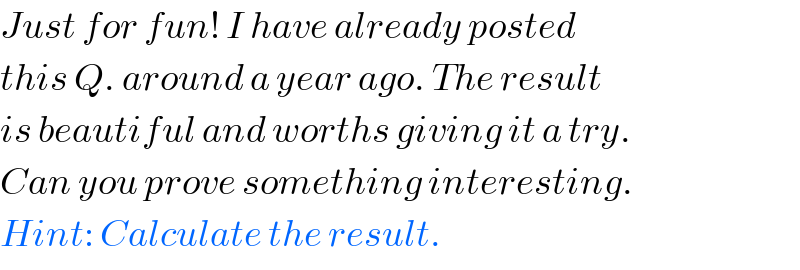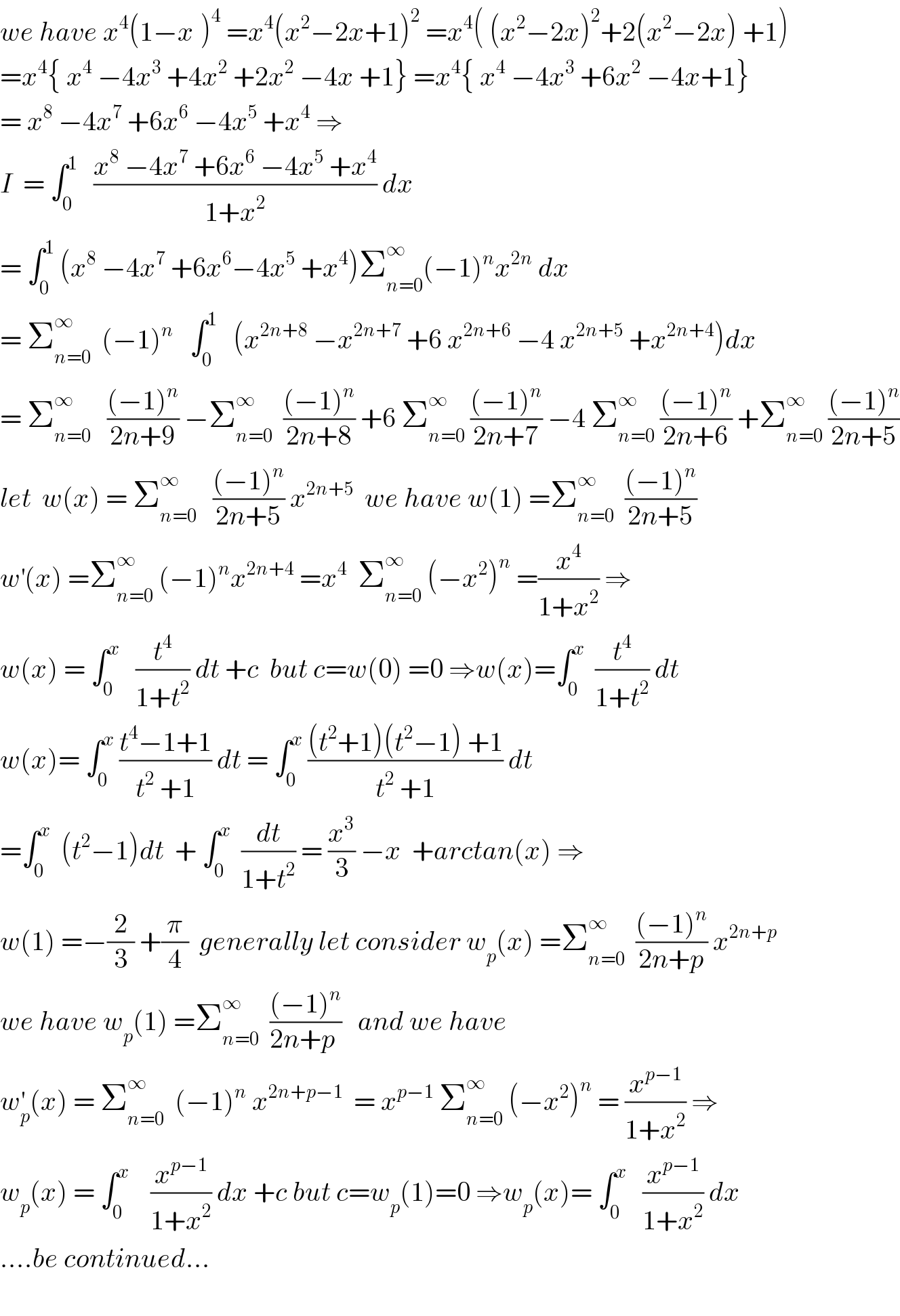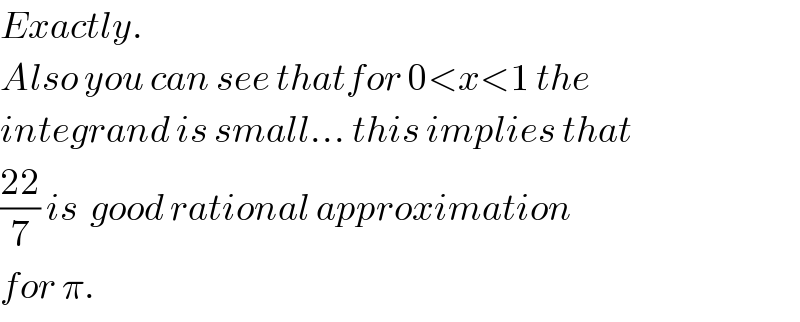
Question and Answers Forum
Question Number 41627 by alex041103 last updated on 10/Aug/18

Commented by alex041103 last updated on 10/Aug/18

Commented by maxmathsup by imad last updated on 10/Aug/18

Answered by rahul 19 last updated on 10/Aug/18

Commented by rahul 19 last updated on 10/Aug/18
≠ 0 ����
Commented by alex041103 last updated on 10/Aug/18

Commented by tanmay.chaudhury50@gmail.com last updated on 10/Aug/18

Commented by rahul 19 last updated on 10/Aug/18
![Since integrand is non−negative & continous everywhere, it must be strictly positive in [0,1]. 0< ((22)/7)−π ⇒ ((22)/7)>π.](Q41665.png)
Commented by alex041103 last updated on 10/Aug/18

